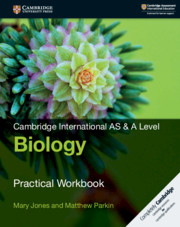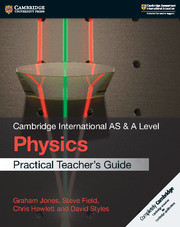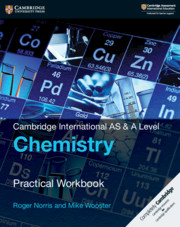05 DECEMBER 2018
Practical work: The benefits, challenges and solutions

Science practicals are one of the fundamental tools enabling our students both to learn scientific knowledge, and how to do science. However, we know that carrying out practical work in class has its own challenges. Teachers have shared with us the difficulties they face finding suitable space, time and resources. They are also concerned about health and safety issues and face student inexperience recognising and using scientific equipment.
“In year 11 we have 3 x 50-minute periods for each of the sciences. For Biology this is not enough. The only way I can get through the syllabus is to reduce the number of practicals”
Teresa B, science teacher, New Zealand
Before Cambridge International AS & A Level there is of course an alternative to the Cambridge IGCSE™ Practical Paper, meaning students may have done very little practical work at Cambridge IGCSE. This often means students lack some of the essential scientific skills for practical work, which can be a challenge when you are faced with a large syllabus to teach and students who are uncertain of the equipment and method.
Practical work has clear benefits, helping students acquire the essential skills that not only give a fluid transition to higher-study, but open the doors to science as a profession. As the Gatsby Foundation states so succinctly ‘practical science shows students at first-hand how scientists and technicians work. It engages students to follow science further, on academic or technical routes. It gives them practical skills and attitudes that will be valuable in their future careers’.
Practical investigations also play an important role in developing 21stcentury transferrable skills, with universities and future employers looking for critical thinkers who can problem-solve. Read more about this in our previous blog about teaching critical thinking in science.
In spite of these benefits, the challenges remain. What can be done to alleviate them?
Preparation and planning
“in international schools…procurement can be difficult”
Daniel C, science teacher, East Africa
Planning and preparation can take time, finding space and appropriate resources can be difficult and of course, all practical work must take place in a safe environment. The usual challenge we have heard is making sure students wear eye protection. Help is available however, guidance on how to plan and carry out practical activities safely can be found in practical teaching guides and practical workbooks. There will also be suggestions for alternative equipment and guidance on how to differentiate activities. Practical teacher’s resources, lesson observation and peer support can all help if you’re struggling to plan practical sessions.
“I have been helping my teachers to plan lessons specially in practicals which they usually find challenging”
Farhat D, science teacher, South Asia
For inexperienced students, practical workbooks can provide helpful support and save time, with step-by-step instructions, diagrams identifying scientific equipment and detailing procedure, and helpful health and safety advice.
Practical learning
Another challenge can be helping students to learn from practical work. It’s important to make sure you have clear learning objectives for the piece of practical work you are about to carry out and to understand the role you will play in helping the students reach this objective. Practical work can in fact facilitate learning in the classroom. Using a practical activity can help structure a lesson and improve engagement and knowledge retention:
“Many students learn more easily by actually "doing" activities. This is particularly relevant in practical science activities. When studying a particular topic, we often begin with a practical exercise in the laboratory with an open-ended exercise where students are encouraged to make their own hypotheses and then to test these and draw conclusions”.
Joan H, science teacher, South Africa
If all else fails…
We know with time constraints and the size of the syllabus it’s not always possible to complete practical work; that’s when sample data can be useful, enabling students to express the data in chart and graph form, analyse the results and report their findings.
With clear objectives and step-by-step guidance, students can grow in confidence, gaining understanding and skills that will not only enable them to work as scientists, but develop critical thinking skills helping them to become confident, independent learners.
With ideas from Approaches to learning and teaching Science by Mark Winterbottom
 |
 |
 |
Thank you for your feedback which will help us improve our service.
If you requested a response, we will make sure to get back to you shortly.
×